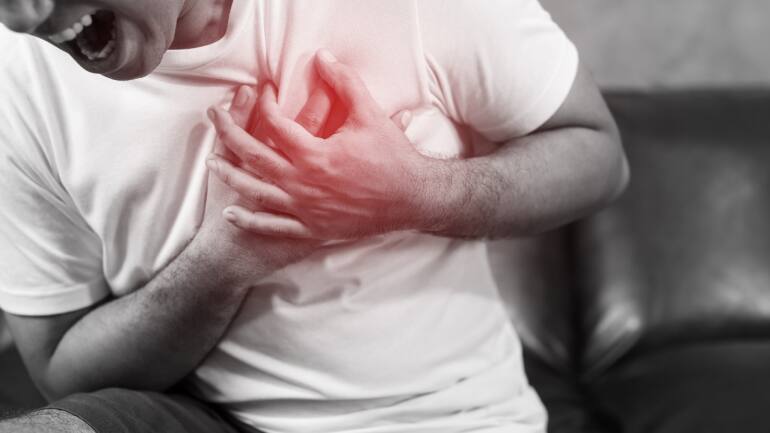
STRATEGIES TO GET RELIEF FROM HEARTBURN DURING NIGHT-TIME SUGGESTED BY EXPERT
Ensuring a peaceful night's sleep is imperative for overall health and well-being. Yet, for many individuals, night-time heartburn poses a significant challenge to achieving this essential goal.
While over the counter and prescription medications offer relief from heartburn symptoms, prevention through lifestyle changes is paramount. Here are 12 strategies for night-time heartburn relief as suggested by gastrologist Rakul Kaur.
Sleep on your left side: This position has been found to alleviate night-time heartburn symptoms by preventing stomach acids from rising up the esophagus, reducing discomfort.
Maintain a healthy weight: Even a modest weight loss of as little as two and a half pounds can help alleviate heartburn symptoms, as excess weight can exacerbate the condition.
Elevate your upper body while sleeping: Propping up your upper body prevents stomach acids from refluxing into the esophagus. This can be achieved by raising the head of your bed or using a wedge-shaped pillow.
Opt for loose-fitting clothing: Tight clothing, particularly around the waist, can exacerbate heartburn symptoms by putting pressure on the stomach. Choose loose-fitting attire to minimise discomfort.
Identify and avoid trigger foods: Foods like alcohol, caffeine, chocolate, spicy foods, fatty foods, and acidic foods can trigger heartburn. Keeping a food diary helps pinpoint specific triggers to avoid.
Avoid late-night or large meals: Consuming meals at least two to three hours before bedtime reduces stomach acid and minimises night-time heartburn symptoms. Opt for smaller, lighter meals in the evening.
Practice mindful eating: Eating slowly and mindfully reduces stress on the digestive system and lowers stomach acid production, easing heartburn symptoms. Incorporate relaxation techniques like deep breathing or meditation after meals.
Remain upright after eating: Sitting or standing upright after meals prevents stomach acids from refluxing into the esophagus. Avoid lying down immediately after eating and refrain from strenuous activities.
Allow time for digestion before exercising: Engaging in rigorous exercise too soon after eating can exacerbate heartburn symptoms. Wait a couple of hours to allow your stomach to empty before exercising.
Chew gum: Chewing gum stimulates saliva production, which helps neutralise stomach acid and soothe the esophagus. Choose non-peppermint flavors to avoid worsening heartburn symptoms.
Quit smoking: Smoking irritates the gastrointestinal tract and relaxes the muscles of the esophagus, leading to increased heartburn symptoms. Quitting smoking improves overall health and alleviates heartburn.
Review medications with your doctor: Certain medications can contribute to or worsen heartburn symptoms. Consult with your Dr to adjust or change medications if necessary.
If lifestyle changes are insufficient in managing heartburn symptoms, seeking medical treatment is recommended. Persistent or severe heartburn may indicate underlying conditions such as gastroesophageal reflux disease (GERD) or Barrett's esophagus.
2024-05-03T06:58:21Z dg43tfdfdgfd